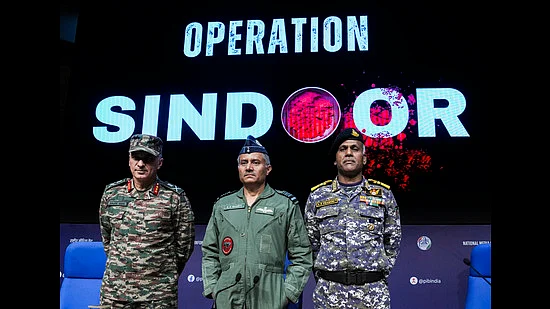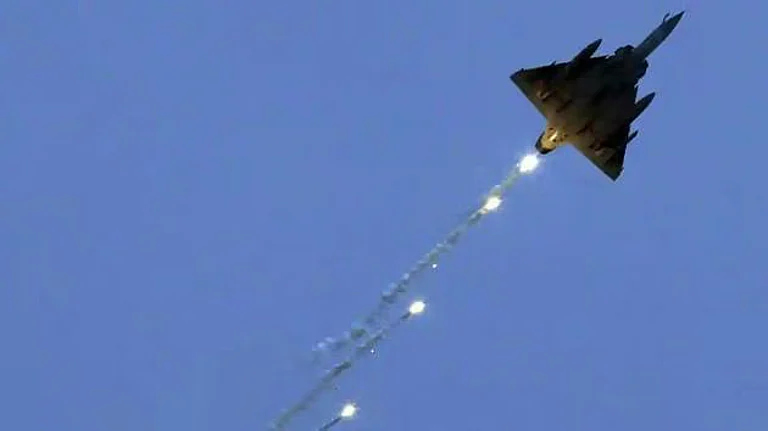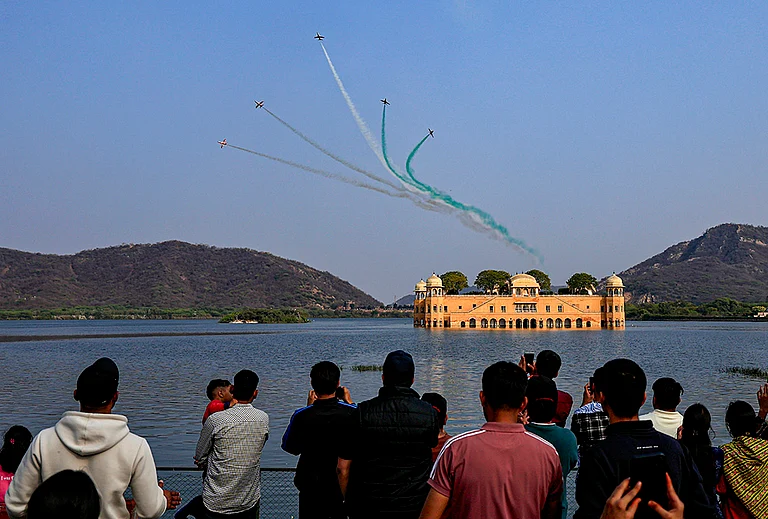
Less than 50 weapons used to neutralise key Pakistani military assets.
Several targets hit were untouched even during the 1971 war.
IAF ensured precision targeting to avoid collateral damage.
Vice Chief of the Air Staff Air Marshal Narmdeshwar Tiwari said on Saturday that Islamabad was obliged to call for the cessation of military hostilities by midday on May 10 after the Indian Air Force shot fewer than 50 weapons at precisely selected Pakistani military targets.
According to PTI, recounting the mission, Air Marshal Tiwari stated that the attacks carried out after Pakistan's onslaught on the intervening night of May 9 and 10 allowed the IAF to acquire "complete domination" over the Pakistani forces.
"I must tell you that it was a key takeaway for us that in less than 50 weapons, we were able to achieve complete domination. It has not happened before," Tiwari said at the NDTV Defence Summit.
The senior IAF officer, who played a key role in Operation Sindoor, said some of the Pakistan targets that were "taken out" in the course of the mission were not hit even during the 1971 war.
"We made every weapon count, and that is a tacit acknowledgement of the capability of our planners and people who executed the missions," he said.
On May 7, India launched Operation Sindoor to target terrorist infrastructure in Pakistani-controlled territories in response to the Pahalgam terror event.
Following four days of intense combat brought on by the attacks, a cease-fire agreement was reached on May 10.
The Vice Chief of Air Staff detailed the events leading up to Operation Sindoor and gave some graphic details of India's response to the April 22 terror attack in Pahalgam. After hitting Pakistani terror installations early on May 7, Air Marshal Tiwari said India did not want to make matters worse.
"We expected a response and still kept it calibrated, and we engaged only military targets. However, when the main attack occurred on the night of May 9-10, that was the moment we decided to act and send the right message. We hit them pan-front," he said.
"There were targets which were taken out, which were not even taken out during the 1971 war. That is the kind of extent and damage to capability that we had caused to them," he said, adding that the IAF restricted its strikes to only military targets.
PTI reported that the top IAF official stated that the strikes were intended to send the "right message" and destroy Pakistan's capacity.
He admitted that there are risks involved in using such long-range vectors to strike enemy targets, but the IAF carried out the mission flawlessly.
"The precision targeting from this range is very, very essential as it is very risky because the longer the vector, you feel that there are more chances of collateral (damage)." However, we were able to hit every target exactly, which is a tribute to our planners and the individuals who carried out the operations. We succeeded in preventing collateral damage. "This game is not easy," he remarked.
"Even though you have a long-range vector, the entire team—not just the pilots who fired them—works to ensure that the weapon or vector hits a target precisely. Many people on the ground are responsible for making that happen," he said.
India told Pakistan that the strikes were directed at terrorist bases and that it did not want to aggravate the situation after hitting the terror infrastructure. But as Pakistan launched a military retaliation, India responded to it very strongly.


























